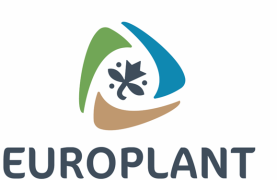Spongospora subterranea f. sp. subterranea (Sss) is the causal agent of the potato tuber disease, powdery scab. Sss infects a wide range of species, often used for cover cropping or as rotation crops. These alternative hosts are classified into several host types based on the presence of specific Sss pathogenic structures within their roots. True hosts produce sporosori that could contribute to the soil inoculum, whilst trap crops prevent Sss from completing its life cycle. This study investigated the Sss host status of various crops using a combination of bioassays and microscopic root assessments for pathogen detection, and molecular techniques for infection confirmation. Sss DNA was detected in all 26 species evaluated, and these were subsequently classified as alternative hosts of Sss. Most species assessed were identified as true hosts. Brassica alba, Chloris gayana, and Cucurbita moschata were the only species in which only the zoosporangial life cycle phase was noted and were classified as potential trap crops. Several species identified in the literature as trap crops and non-hosts were reclassified based on the results of this study. Additional research and field trials are required to determine the importance of the host status of rotation crops on Sss soil inoculum.
Full publication URL















